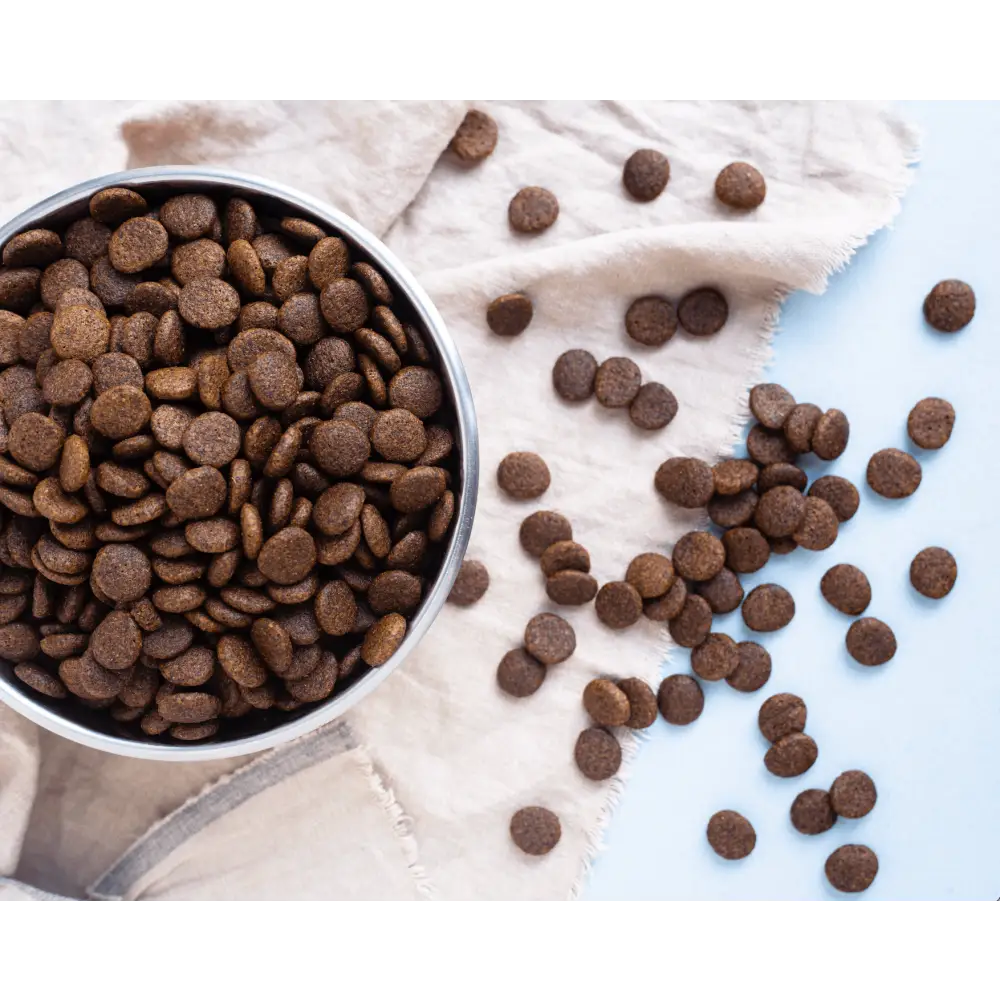As you might have experienced, if you have close contact with an elderly relative, arthritis can be debilitating and a source of constant pain.
But did you know that osteoarthritis can also affect our canine companions and feline friends?
It is estimated that up to 50% of our dogs and cats will be affected by this degenerative condition which can cause long term health issues alongside the degeneration of joints and cartilage.
In today’s post, we will be finding out exactly what osteoarthritis is, how to spot the signs of it, what the traditional diagnoses and treatments are, and how to keep your pet at the lowest possible risk of developing osteoarthritis and the issuers that come as a result.
What is Osteoarthritis in Dogs and Cats?
As with humans, osteoarthritis is very common in smaller mammals such as cats and dogs and is estimated to affect between 30% to 50% of our household pets. It is also known that nearly 90% of cats, over the age of 12, show signs of the disease. Although arthritis is common in older animals it can affect pets of any age.
Osteoarthritis causes long-term degeneration of joints, affecting cartilage, the bone under the cartilage, joint capsules, ligaments and tendons. Osteoarthritis can lead to chronic inflammation and pain, which in itself can cause a whole host of problems.

Although it is still not entirely clear what causes arthritis in our pets, in some cases, things like joint trauma, dysplasia, broken bones and fractures can set it off.
The most common cause of arthritis in animals is simply the ‘wear and tear’ of joints and cartilage associated with old age and overuse, with cats being affected more than dogs. However, osteoarthritis is a disease and not all animals will suffer from it, regardless of age, previous injuries and trauma.
How to Spot the Signs of Arthritis in Your Pets
The most common signs of your pet suffering from arthritis are; stiffness, limping, lack of energy, failure to use the litter box or get outside in time, joint swelling, aversion to being touched, irritability and other signs of discomfort that you may notice in your best furry friend.
As a pet owner, you will know your canine companions and feline friends better than anyone and as such, you will be able to spot the signs of your pet being uncomfortable or in pain and take the appropriate measures if or when you notice these symptoms.
Diagnosis and Treatment of Osteoarthritis in Pets
If you do notice any of the above symptoms, it is essential to arrange an appointment with your furry friend's veterinary practice at the nearest possible convenience. Your vet will conduct a physical examination alongside a series of x-rays to confirm the presence of arthritic joints. Your vet may also want to do some further blood and other lab tests, in order to rule out any other underlying conditions that may be causing pain in your pets.
Although there is no cure for arthritis, there are a number of treatments that are available to reduce the pain and inflammation caused by this degenerative condition. It is always important to undertake treatment of your pets with the advice of a professional, we would never suggest self-treatment of any animal unless you are trained in veterinary medicine. Treatments can include;
Hydrotherapy: Low impact exercises for arthritic dogs to manage weight and stay healthy.
Experimental Therapies: Some research has shown that processes such as deep tissue laser therapy and shockwave therapy have been effective in treating discomfort in pets caused by arthritis.
Anti-inflammatories and pain medications: Although pharmaceuticals arent always the best option, drugs like NSAIDs and painkillers can be effective in reducing discomfort in your pet.
Heat and Cold Therapies: Gel and ice packs can be used at home to reduce inflammation.

Supplements: Dietary additions such as chondroitin and glucosamine have been shown to reduce inflammation and encourage better mobility.
Physiotherapy: Treatment by a qualified pet physio can be beneficial for any arthritic animal.
Surgery: In some extreme cases a hip replacement or correction of fused joints might be an option, however, this will be rare.
As we said above, none of these treatments should be undertaken without the guidance of your vet and an accurate diagnosis of arthritis in your animal.
Preventing Arthritis in Your Pets
As we always say at The Pets Larder, it is always best to take as many steps as you can to prevent your pets from getting unwell. As arthritis in all forms is incurable, it is important that we take as many steps as we can to look after the joints of our precious pets.
As we mentioned above, supplements such as chondroitin and glucosamine can be beneficial in maintaining healthy joints. Treats such as Forthglade Joint and Bone Treats for Dogs and foods such as Canagan Light For Cats, are specially formulated with these fantastic dietary supplements. Omega-3 is also an essential part of maintaining healthy joints and mobility and can be found in a myriad of different fishy treats, chews and foods, here at The Pets Larder.
















